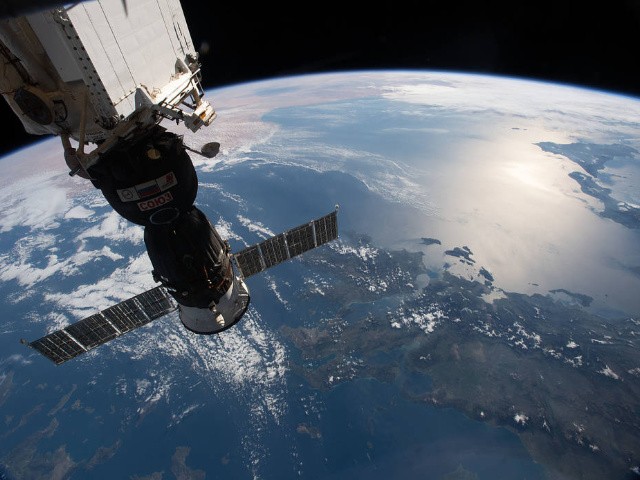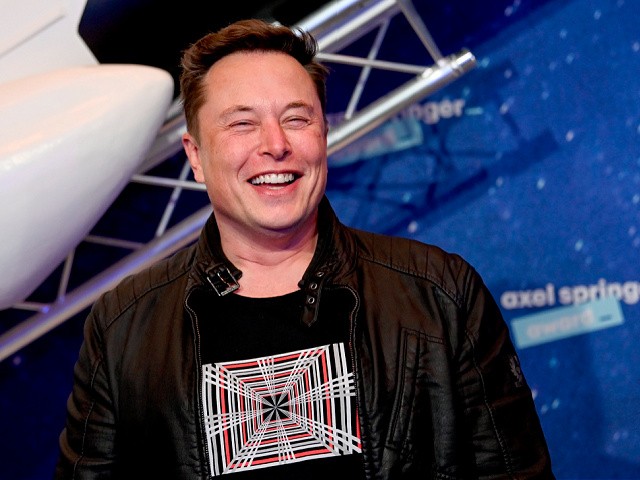Elon Musk’s SpaceX has emerged as the dominant force in the rocket-launch market, handling a staggering 88 percent of customer flights from American launch sites in the first half of 2023. One former Air Force space operations officer explains, “The fact is that the competition can’t field anything right now and that makes SpaceX a de facto monopoly.”
The Wall Street Journal reports that Elon Musk’s space exploration business, SpaceX, has emerged as the industry leader in space launches, handling an astounding 88 percent of all customer flights from American launch facilities in the first half of 2023.

(March 31, 2019) — The Soyuz MS-12 spacecraft is pictured docked to the International Space Station’s Rassvet module as the orbital complex flew 256 miles above the Aegean Sea. This view looks from northeast to southwest, from Greece, Italy and across the Mediterranean Sea to Libya. (NASA)

BERLIN, GERMANY DECEMBER 01: SpaceX owner and Tesla CEO Elon Musk poses on the red carpet of the Axel Springer Award 2020 on December 01, 2020 in Berlin, Germany. (Photo by Britta Pedersen-Pool/Getty Images)
SpaceX’s reusable rockets have proven to be both reliable and cost-effective, outpacing rivals in terms of launch frequency and affordability. This has led to an increasing dependence on SpaceX by satellite operators and government agencies to reach orbit. “The fact is that the competition can’t field anything right now and that makes SpaceX a de facto monopoly,” said John Holst, a former Air Force space operations officer who now writes a newsletter about the space industry.
The company’s dominance is expected to continue, given the current geopolitical climate and the lack of competition. The Russian Soyuz rocket, once a viable alternative, has become off-limits for many launch buyers due to Russia’s invasion of Ukraine. Other potential competitors, such as Jeff Bezos’ Blue Origin and the French launch company Arianespace, are yet to launch their cargo vehicles.
SpaceX’s grip on the launch business has significant implications for the future of space exploration. Government agencies and satellite operators must now align their ambitions with the company’s timetables and capabilities. This has led to a unique situation where SpaceX is not just a service provider, but also a gatekeeper of space access.
The company’s dominance extends to human spaceflight as well. SpaceX is currently the only company ferrying NASA astronauts to and from the International Space Station. This role was once held by United Launch Alliance, but SpaceX has since taken over, further solidifying its position in the market.
“We don’t really think about the competition,” Musk, SpaceX’s chief executive, said recently during a space-focused chat on Twitter. However, SpaceX’s dominance has also raised concerns. Some satellite-internet companies have to pay SpaceX to launch devices that help them compete with SpaceX’s own satellite-broadband service, Starlink. This has led to an uncomfortable situation where SpaceX is both a supplier and a competitor.
Read more at the Wall Street Journal here.
Lucas Nolan is a reporter for Breitbart News covering issues of free speech and online censorship. Follow him on Twitter @LucasNolan


